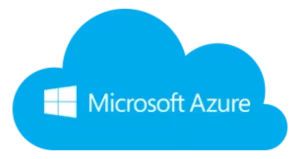Cloud Computing
Numerous organizations around the globe are embracing on-demand cloud computing services. Cloud Computing has taken administrative, and many other business functions, to a whole new level of accessibility. With a mountain of positivity from companies seeing the benefit of cloud computing, there remains a steady flow of new clients shifting to this type of service.
With cloud computing, data centers are accessible to users to provide storage and intricate computing; all without human supervision. The network can be private or public depending on the number of organizations with access to the storage. Whether it’s a public or private cloud, the differences in service to any user are indistinguishable.
With cloud computing, data centers are accessible to users to provide storage and intricate computing; all without human supervision. The network can be private or public depending on the number of organizations with access to the storage. Whether it’s a public or private cloud, the differences in service to any user are indistinguishable.
Azure
Compatible with Microsoft and Linux platforms, Azure is a high-powered cloud computing platform that runs any type of application, integrates well with existing applications, as well as seamless data transfer, storage and retrieval.

Amazon Web Services (AWS)
Amazon Web Services (AWS) is another business building platform with brilliantly designed solutions using integrated web services. Its range of services includes access to admin controls through a secure, encrypted channel. AWS also allows the customization of infrastructure requirements. This costs far less than setting up one’s premises, plus access to the Amazon Elastic Compute Cloud (EC2) service to run and acquire servers as necessary.
Google Cloud Platform
Google Cloud Platform offers security and safe storage for all business solutions. All interactions within your system are appropriately and securely saved. Google Cloud services can be used and implemented as Infrastructure-as-a-Service (IaaS) and Platform-as-a-Service (PaaS). Seamless transition to virtual machines alongside consistent performance and management can be added as an advantage for organizations using the platform for their cloud computing solution.
Infrastructure-as-a-Service (IaaS)
A basic and easy-to-use cloud computing service where users can rent IT tools from the cloud. Tools able to be rented on IaaS include OS (operating system), storage, and virtual machines. IaaS is a scalable, simple expansion process; able to prevent wasted or unused resources. Above all, affordability makes it an ideal choice for enterprises on a tight budget.
Platform-as-a-Service (PaaS)
PaaS is more suitable for developers. As an on-demand environment, developers can develop, test, and manage software designs. It’s a fully packed cloud computing platform designed to facilitate software development. Without going through rigorous processes, software development takes place within the underlying infrastructure of servers, storage, network, and databases provided. With these provisions, software development is not only simplified, but management and maintenance become seamless.
Software-as-a-Service (SaaS)
Software delivery on Software-as-a-Service (SaaS) allows the management of software on the web. With SaaS, the software can be hosted on the web with any physical infrastructure. Updates, security patching, and maintenance are all web-based; available for use on the SaaS hosting platform.
Cloud computing is the next generation of technological advancement gaining momentum by the day. Developers can relate to the use of these cloud computing platforms, and equally the end user can too. Online-based editing tools, streaming platforms, data backup, and a host of online-based activities on mobile and other devices are ways users interact with cloud computing services. On the other side, the developers who create these services are using cloud computing as the service’s operating structure.
Cloud computing is the next generation of technological advancement gaining momentum by the day. Developers can relate to the use of these cloud computing platforms, and equally the end user can too. Online-based editing tools, streaming platforms, data backup, and a host of online-based activities on mobile and other devices are ways users interact with cloud computing services. On the other side, the developers who create these services are using cloud computing as the service’s operating structure.

